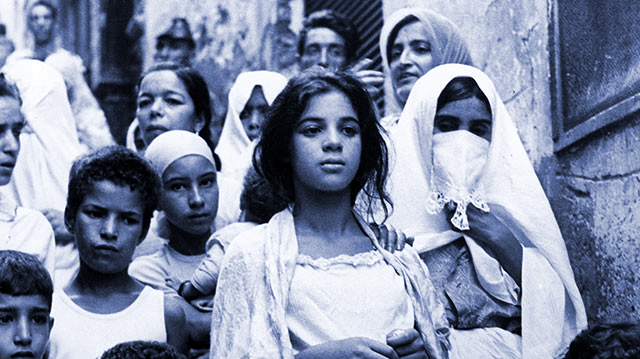Postcolonial Theory as Cinematic Fantasy Instructor: Serubiri Moses Date & Time: Saturdays, November 2, 9, 16, 23 11 AM - 1:30 PM ET

DESCRIPTION The archive and its geography stand out the most in Hugo-Olsson’s film Concerning Violence: Nine Scenes from the Anti-Imperialistic Self-Defense, a film following Franz Fanon’s philosophical exegesis The Wretched of the Earth. The amount of attention paid to geography in the film has an ontological relation to colonialism. Geography is central to imperial expansion, as the foremost tool of colonial navigation. The focus on the archive is similarly obsessive, giving the illusion that all African anti-colonial movements occurred at the same time. This point of view is admittedly skewed. Irit Rogoff’s prediction that these movements in Africa ruptured the historiography and political culture of America and Europe is useful in contemplating Göran Olsson’s film. However, the genesis of these many events is hardly narrated.
Postcolonial Theory has so often taken the premise of events happening in the outside rather than the inside; and “over there” rather than “right here.” This externalizing tendency creates a distance both geographically and temporally, translating in film as cinematic distance. Cinema remains one of the foremost fields in which fantasy signals temporal distance, nostalgia, violence, as well as the geographical disparity of events taking place elsewhere or another continent. Thus, if we consider an understanding of “cinematic distance” as something between temporal and geographic disparities, how can we analyze the cinematic interpretations of postcolonial theory? How do we look at these fictions through their entanglements with alternate histories taking place in Africa? Further, how can we incorporate an economic analysis of cinema and its appropriated contexts? This Seminar combines readings of select “postcolonial” cinema in the form of film reviews, scripts, as well as scholarly articles, on the one hand, with readings of violence, settler colonialism, and on the other hand history. The Seminar will also look at he following films: Les Statues Meurent Aussi (Chris Marker, 1953), Concerning Violence: Nine Scenes from the Anti-Imperialistic Self-Defense (Göran Olsson, 2014), Two Meetings and a Funeral (Naeem Mohaiemen, 2017), The Battle of Algiers (1966), In the Year of the Quiet Sun (Otolith Group, 2013), Frantz Fanon: Black Skin, White Mask (Isaac Julien, Mark Nash, 1995)
IMAGE: Gillo Pontecorvo, 1954
To see The New Centre Refund Policy CLICK HERE.
To see The New Centre Refund Policy CLICK HERE.